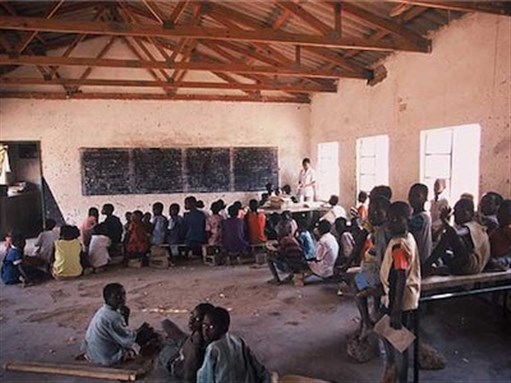Arab Studies Journal :
Visual Arts and Art Practices in the Middle East (Spring 2010)
This themed issue of the Arab Studies Journal was developed in response to the remarkable changes that have occurred over the last decade within the world of Middle Eastern art – from the mushrooming of “independent” art spaces, events, and festivals regionally, to the burgeoning of a Gulf-based art market supported by an immense infrastructure of commercial galleries and world-class museums. This special issue of the Arab Studies Journal presents original scholarship, conversations, and reviews that illustrate the complexity and diversity of this fast-growing field. Contributions cover a range of geo-political, cultural, and historical contexts: portraiture in late Ottoman Beirut; the Egyptian surrealist movement in the late 1930s; contemporary Iraqi art; art and aid in contemporary Lebanon; the history of Palestinian art over the last 150 years; and recent international art exhibits and events featuring Arab, Turkish, and Iranian artists.
Through its breadth of historical and geographical scope, this issue of ASJ provides an important corrective to both the popular media’s representation, which all-too-often views contemporary Middle East art in isolation from historical context and exclusively through the lens of identity politics, and also the traditional academe, which tends to dismiss the modern and contemporary in favor of pre-modern, Islamic art.
Artists featured in this issue include: Hassan Khan, Naeem Mohaiemen, Haig Aivazian, Can Altay, Cevdet Erek, Leyla Gediz, Wafaa Bilal and Amirali Ghasemi.
CONTENT:
Theme Articles
Authenticity and Its Modernist Discontents: The Colonial Encounter and African and Middle Eastern Art History
by Prita Meier
Daoud Corm, Cosmopolitan Nationalism, and the Origins of Lebanese Modern Art
by Sarah Rogers
Egyptian Surrealism and “Degenerate Art” in 1939
by Don LaCoss
On Being “the Other” in Post-Civil War Lebanon: Aid and the Politics of Art in Processes of Contemporary Cultural Production
by Hanan Toukan
Articles
Hashemitism, Jordanian National Identity, and the Abu Odeh Episode
by Stefanie Nanes
Ottoman Reform, Islam, and Palestine’s Peasantry
by Erik Eliav Freas
Conversations
A Constant State of Urgency
Street Talk: On Infrastructure and Pleasures
Six-Shooters and Nationalist Stamps: A Conversation Between Naeem Mohaiemen and Haig Aivazian
When Global Art Meanders on a Magic Carpet: A Conversation on Tehran`s Roaming Biennial
To Participate or Follow? (Views on the Current Situation of the Istanbul Art Scene)
Interview
Interview with Wafaa Bilal
Theme Reviews
Palestinian Art: From 1850 to the Present
by Kamal Boullata
reviewed by Rhonda A. Saad
Off the Wall: Political Posters of the Lebanese Civil War
by Zeina Maasri
reviewed by Sune Haugbolle
Tarjama/Translation. ArteEast Exhibition at the Queens Museum of Art, New York. 10 May – 27 September 2009
reviewed by Clare Davies
Iran Inside Out. Group Show, Chelsea Art Museum, New York City. 26 June – 5 September 2009
reviewed by Kamran Rastegar
What Keeps Mankind Alive?. 11th International Art Exhibition, Istanbul Biennial. 12 September – 8 November 2009
reviewed by Nermin Saybasili
Making Worlds // Hacer Mundos // Fare Mundi. 53rd International Art Exhibition, Venice Biennale. 7 June – 22 November 2009
reviewed by Nada Shabout
Book Reviews
The Other Iraq: Pluralism and Culture in Hashemite Iraq
by Orit Bashkin
reviewed by Haytham Bahoora
Conflicted Antiquities: Egyptology, Egyptomania, Egyptian Modernity
by Elliott Colla
reviewed by Yasmine Ramadan
Dubai: The Vulnerability of Success
by Christopher M. Davidson
reviewed by Arang Keshavarzian
The Power of Representation: Publics, Peasants, and Islam in Egypt
by Michael Ezekiel Gasper
reviewed by Aaron Jakes
A Brief History of the Late Ottoman Empire
by M. Sükrü Hanioğlu
reviewed by Cenk Palaz
My Happiness Bears No Relation to Happiness: A Poet’s Life in the Palestinian Century
by Adina Hoffman
reviewed by Hala Khamis Nassar
Poets for Palestine
by Remi Kanazi, ed.
reviewed by Ahmad Diab
Saviors and Survivors: Darfur, Politics, and the War on Terror
by Mahmood Mamdani
reviewed by Caitlyn Bolton
The Politics of Chaos in the Middle East
by Oliver Roy
reviewed by Matthew Berkman
Hollow Land: Israel’s Architecture of Occupation
by Eyal Weizman
reviewed by On Barak
Power and Water in the Middle East: The Hidden Politics of the Palestinian-Israeli Water Conflict
by Mark Zeitoun
reviewed by Nicholas Rowe
![[Oil painting created by Lebanese artist Daoud Corm in 1899, titled Melons. This painting is currently on display in the Mathaf Arab Museum of Modern Art in Doha, Qatar.]](https://kms.jadaliyya.com/Images/357x383xo/Daoud_Corm_Melons.jpg)

















